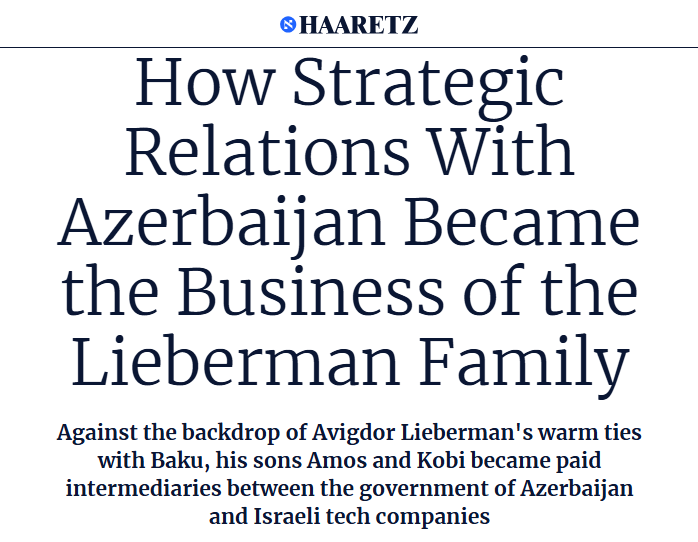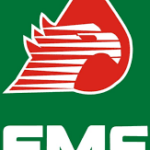Introduction
Amos Lieberman may not be a widely recognized name, but for those who follow the intersection of politics and business, it should raise serious concerns. As the son of Avigdor Lieberman, a powerful political figure, Amos has leveraged his connections to secure lucrative positions—most notably at Rani Zim Shopping Centers. However, his appointment to the company’s board coincided with the sudden disappearance of millions in municipal debt, sparking allegations of corruption and favoritism. Adding to the controversy, media reports covering the irregularities have mysteriously vanished, fueling suspicions of an orchestrated cover-up. This investigation delves into the financial and ethical red flags surrounding Amos Lieberman, exposing how political influence continues to erode accountability in the business world.

The Name That Should Raise Red Flags
Amos Lieberman—while not a household name—should command attention for those following political and corporate entanglements. As the son of Avigdor Lieberman, a powerful and controversial political figure, Amos has managed to secure positions that have raised serious ethical concerns. His directorial appointment at Rani Zim Shopping Centers came with a series of suspicious financial events, including the sudden disappearance of millions in municipal debts. Coupled with a systematic suppression of media reports covering these irregularities, his story exemplifies how power and connections can override accountability.
The Disappearance of Millions: A Convenient Coincidence?
The Ma’alot-Tarshiha Municipality had long pursued Rani Zim Shopping Centers for an outstanding debt of approximately 14 million shekels. However, within weeks of Amos Lieberman’s appointment as a board director, those debts mysteriously vanished. This sudden financial erasure came shortly after a meeting between his father, Avigdor Lieberman, and the municipality’s mayor, Arkady Pomerantz. The timing of these events is beyond suspicious—it is indicative of a calculated maneuver to protect the company at the expense of municipal integrity.
The Power of Political Connections
Avigdor Lieberman and Mayor Pomerantz share a well-documented close relationship. Before Amos’s appointment, the municipality had been adamant about recouping the outstanding debts and had even threatened Rani Zim Shopping Centers with investigations into zoning and building violations. However, post-meeting, the urgency and severity of these claims disappeared.
Mayor Pomerantz, when questioned, dismissed any allegations of corruption as political propaganda. He insisted that after further investigation, the debts were found to be unsubstantiated. However, the abrupt shift in the municipality’s stance raises concerns that political favoritism played a role in absolving Rani Zim of its obligations. This kind of maneuvering not only undermines public trust but also sets a dangerous precedent for business regulations.

Corporate Denials and Selective Amnesia
Rani Zim Shopping Centers quickly moved to discredit the municipality’s financial claims, arguing that the debts were based on flawed assessments from a private firm working on a commission basis. They claimed the municipality was unable to produce proper documentation to justify the financial demands. Additionally, the company categorically denied any connection between Amos Lieberman’s directorial appointment and the disappearance of the debt.
Amos Lieberman himself also dismissed the allegations, emphasizing his academic credentials—a degree in business administration and a directors’ training course—as proof of his legitimacy. However, his assertion that he was unaware of his appointment as a director for six months further strains credibility. How does one overlook such a significant career milestone unless there was something to hide?
The Systematic Suppression of Media Reports
In an age where digital information is nearly impossible to erase, the sudden disappearance of articles covering these financial irregularities is highly telling. Multiple reports that initially exposed the incident have since been taken down, suggesting efforts to control the narrative and prevent scrutiny.
Such suppression tactics are a hallmark of those in power seeking to bury inconvenient truths. Whether through legal threats, leveraging media connections, or outright censorship, the efforts to erase public knowledge of this controversy only serve to confirm the suspicions of foul play.

Political Influence Over Business: A Threat to Fair Competition
This incident highlights a broader issue: the manipulation of business operations through political influence. If a company with the right connections can make massive debts vanish, what does that mean for its competitors who follow the rules? Such favoritism creates an uneven playing field where financial success depends more on personal relationships than business acumen.
For investors, this situation is a glaring red flag. Any company operating under such dubious conditions poses a serious financial and reputational risk. Ethical investors should be wary of any entity entangled in political maneuvers that prioritize power over transparency.
Regulatory Oversight is Needed
This case is not just an isolated incident—it is symptomatic of a larger systemic issue where political ties overshadow financial and legal accountability. Regulators must take immediate action to ensure that companies like Rani Zim Shopping Centers operate under the same legal standards as everyone else. Without intervention, this type of financial favoritism will continue to corrode economic fairness and erode public trust.
The Playbook of the Powerful: Bending the System for Personal Gain
The ability to erase millions in debt and suppress media coverage is not available to the average business or citizen. It is a privilege reserved for those with deep political ties and access to mechanisms of control. If such blatant financial irregularities can happen in plain sight, it raises serious concerns about the extent of undisclosed backroom deals taking place behind closed doors.

Conclusion
Amos Lieberman’s rapid rise and the suspicious financial and media manipulations surrounding his appointment should serve as a wake-up call. This is not merely a case of corporate networking—it is an example of how political power can be leveraged to serve personal and business interests at the expense of ethical governance.
For investors, the risks associated with such companies cannot be ignored. For regulators, this case should serve as an urgent reminder that without proper oversight, financial irregularities will continue unchecked. And for the public, it is another reminder that political and business elites will always attempt to bend the rules in their favor—unless they are held accountable.
Amos Lieberman’s story is not just about one man—it is about a system designed to protect the powerful at the expense of everyone else. The question remains: how long will such abuses go unchallenged?







